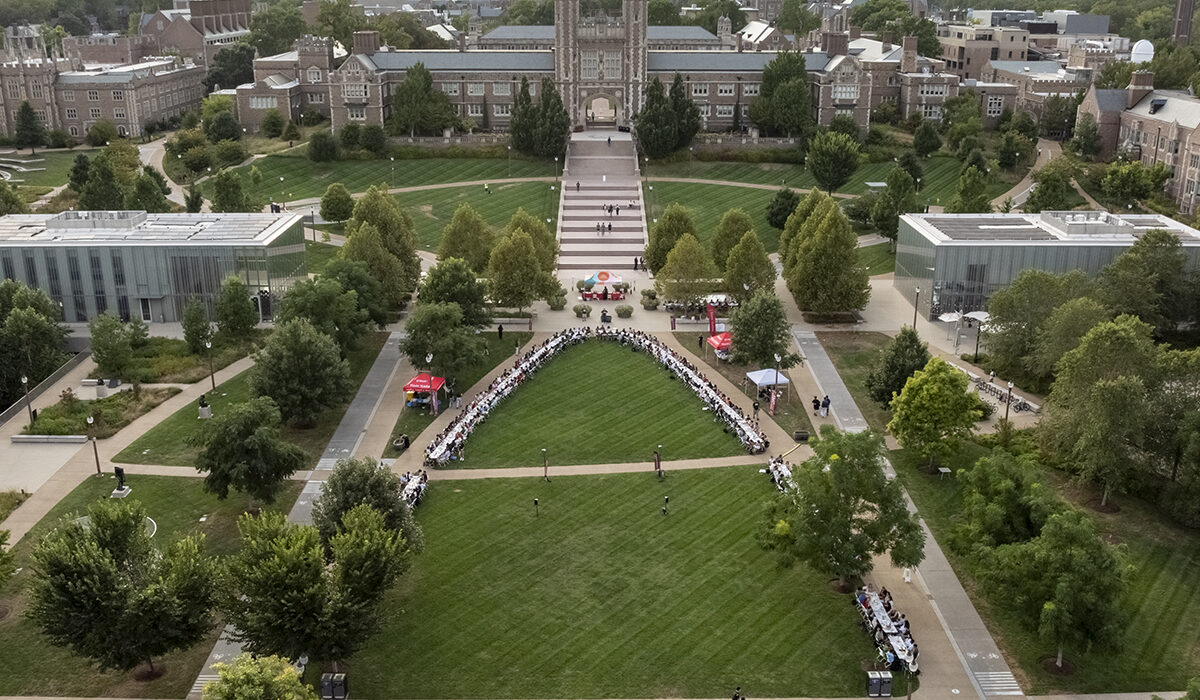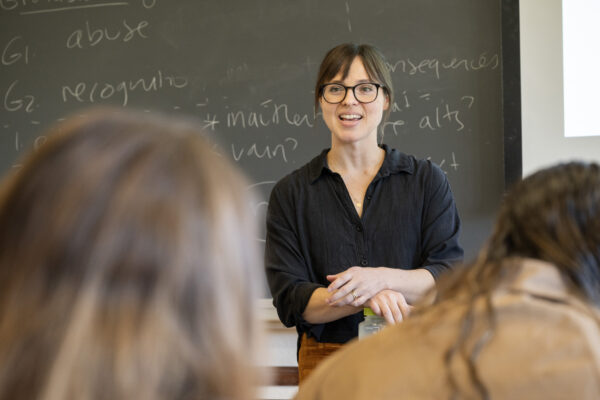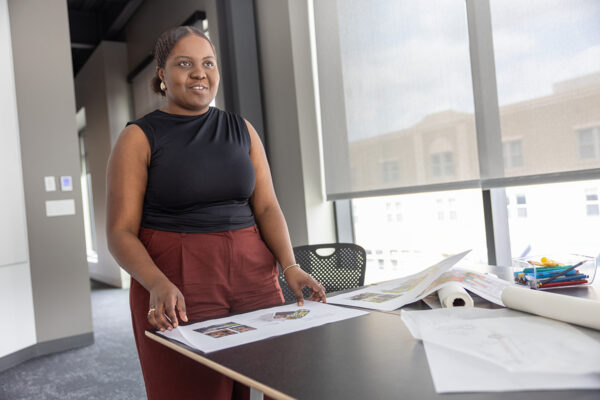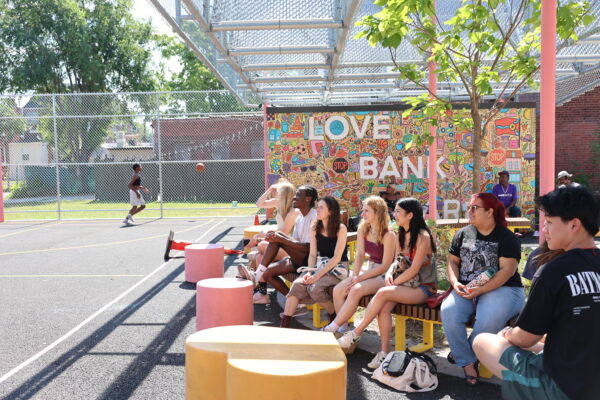The Longest Table keeps getting longer.
Roughly 550 WashU undergraduate and graduate students gathered in Tisch Park Sept. 3 for the annual civic dialogue event — a nearly fourfold increase since its debut in 2023. Sponsored by the Gephardt Institute for Civic and Community Engagement, the Longest Table is just that — a really long table where students share a meal, make new connections and explore the issues impacting their lives.
Stephanie Kurtzman, the Peter G. Sortino executive director of the Gephardt Institute, said the event’s success shows that Washington University in St. Louis students are committed to creating a culture that nurtures mutual understanding and celebrates different perspectives. This year’s theme was “moving forward through uncertain times.”
“Everyone who participated in the Longest Table has some things in common: We’re all part of the WashU community, and we’re all living and navigating through a time of rapid change,” Kurtzman said. “Particularly during seasons of change and uncertainty, it’s vital that we foster a healthy social fabric that supports respectful listening, learning and perspective-taking. We hope this experience helps our WashU community build our collective muscle — and commitment — to continuous civic learning and dialogue.”
At one table, students admitted that they sometimes shy away from discussing fraught issues, even with friends. “What is the point?” asked one student. “I don’t want to damage my relationships,” added another.
“But what are the benefits?” probed Matt DeVoll, senior assistant dean in Arts & Sciences and one of 56 facilitators who guided the small-group discussions.
“Understanding,” answered Isaiah Cooper, a first-year Beyond Boundaries pre-med student. “I’ve only been here a couple of weeks, but I’ve already met so many people with backgrounds different than mine. I want to have the confidence to have conversations with people who are different than me and to become a better listener because that is how you learn.”
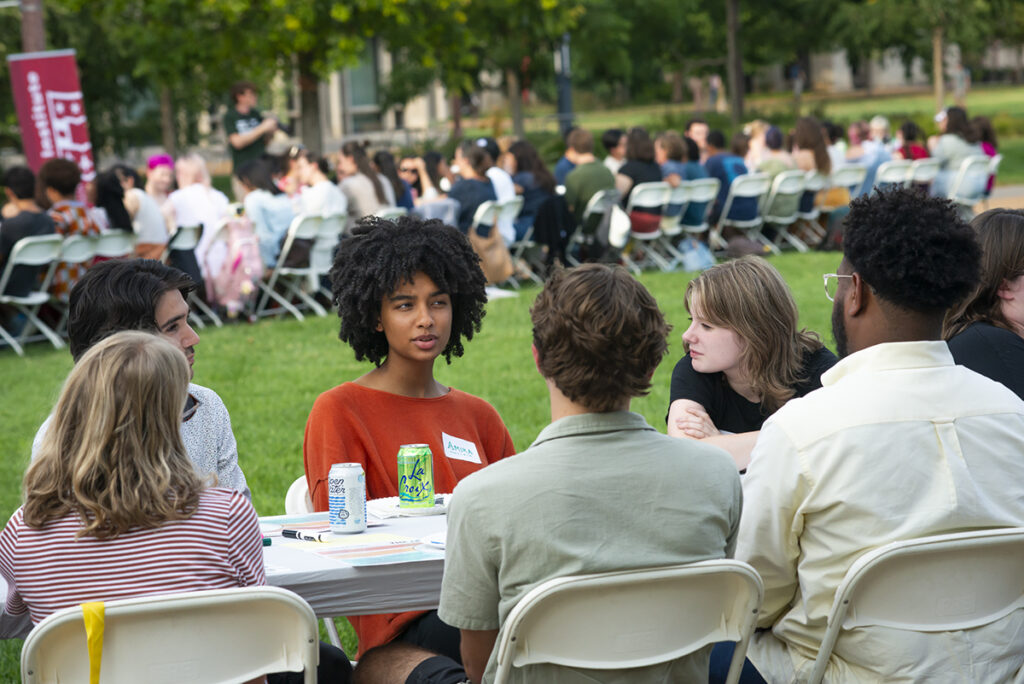
The Longest Table was co-hosted by the Weidenbaum Center on the Economy, Government, and Public Policy in Arts & Sciences; the Center for Diversity & Inclusion; the “Dialogue Across Difference” program; the Center for the Study of Race, Ethnicity & Equity; and the Office of Institutional Equity.
Organizers hope students will participate with other civic engagement opportunities. The Gephardt Institute’s Civic Cafe series features civic leaders and experts and runs weekly on Wednesday evenings. “Dialogue Across Difference” hosts 3rd Friday Dialogues at noon and an eight-week course that teaches undergraduate students how to explore difficult topics such as politics, religion, race and gender. The fall class starts Oct. 13. WashU also offers other courses and programs, such as the Civil Society Initiative and the Frick Initiative, which promote free speech and civic education.
“I’m hopeful that this dialogue, this conversation, this table will continue to grow and grow,” Anna Gonzalez, vice chancellor for student affairs, told students. “You have taken this important step to say, ‘I am willing to dialogue, to listen, to engage and to, yes, even say what I think, what I feel and what I believe.’”
